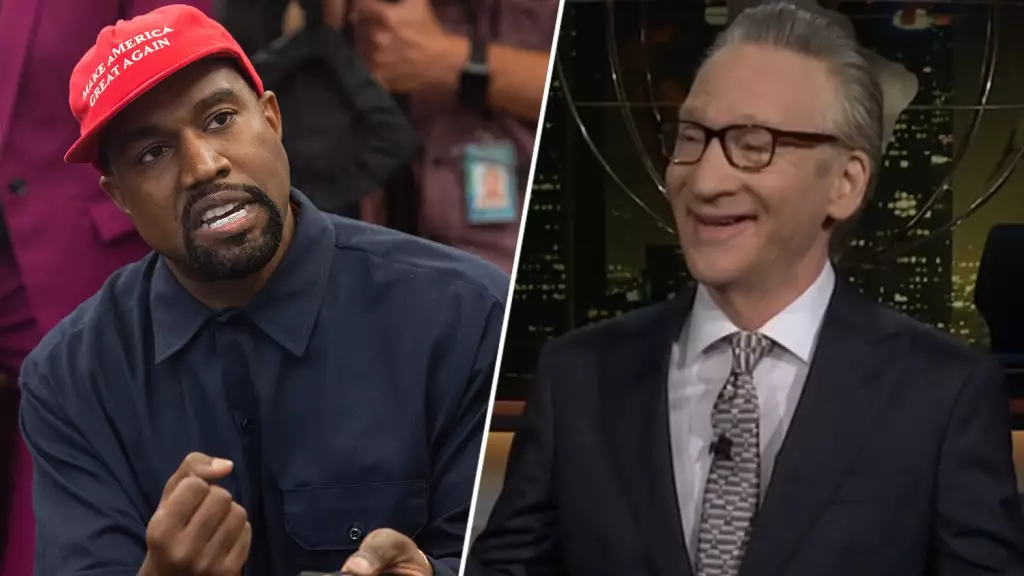Kanye West, a figure who continually occupies headlines, has recently made headlines once again due to his inflammatory remarks about antisemitism. This resurfacing of controversy not only places West at the center of a national conversation regarding intolerance but also showcases the intersection of celebrity culture and dangerous rhetoric. While being an influential pop culture icon carries significant weight, it also imbues individuals with immense responsibility for their words and actions. The responses to West’s comments elucidate how the dynamics of fame can intersect perilously with societal attitudes towards marginalized communities.
On his program “Real Time,” Bill Maher seized the opportunity to vocally critique West’s remarks. Maher called attention to the celebrity’s friendship with Donald Trump, remarking on the absurdity of West’s statements as both reckless and indicative of an alarming trend among certain figures in the entertainment industry. Maher’s assertive commentary reflects a broader concern: the danger of individuals like West utilizing their platforms, not just for self-expression, but to disseminate hateful ideologies that can resonate with millions. By questioning whether West is “trolling” or seeking legitimate political influence, Maher highlights the unsettling convergence of fame and extremist beliefs in contemporary discourse.
The American Jewish Committee’s condemnation of West’s statements insists on accountability, emphasizing the repercussions of high-profile endorsements of antisemitism. At a time when incidents of antisemitism are alarmingly increasing globally, the potency of West’s words cannot be underestimated. His remarks, such as “I love Hitler,” are not merely provocative—they are incendiary and dangerous. The committee’s insistence on calling out such harmful rhetoric is not just a response to an individual’s conduct; it’s a clarion call for collective action within the entertainment industry. The stakes are higher than just social media trolling; they involve real-world consequences for marginalized communities.
History and Repetition: A Troubling Cycle
Reflecting on West’s past controversies, including previous antisemitic remarks and subsequent attempts to apologize, brings forward the troubling cycle of public figures stirring hatred and then retracting their comments when backlash ensues. Although West attempted to convey remorse with an apology in Hebrew after similar incidents, there remains a significant question around the effectiveness of such apologies and their sincerity. The line between comedy and harmful rhetoric is often blurred, but when humor does not serve to uplift or educate, it risks becoming a tool for perpetuating bigotry.
As society grapples with the implications of West’s latest declarations, the dialogue surrounding responsibility and the power of speech takes center stage. Public figures must recognize the weight of their words and the potential impact on societal norms and behaviors. Advocates for tolerance and understanding must continue urging influential individuals to model respect and inclusivity, rather than tribalism and hatred. Only through a concerted effort to confront and challenge hate speech can we begin to dismantle its hold on public consciousness and generate a culture that promotes understanding over division.
